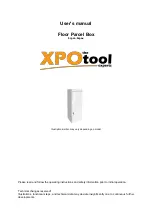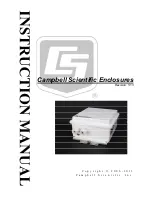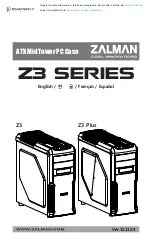
176
Glossary
pixel
— A single point on a video display. Pixels are arranged in rows and columns to
create an image. A video resolution, such as 640 x 480, is expressed as the number of
pixels across by the number of pixels up and down.
POST
— Power-on self-test. Before the operating system loads when you turn on your
system, the POST tests various system components such as RAM and hard drives.
processor
— The primary computational chip inside the system that controls the
interpretation and execution of arithmetic and logic functions. Software written for
one processor must usually be revised to run on another processor.
CPU
is a synonym
for processor.
protected mode
— An operating mode that allows operating systems to implement:
• A memory address space of 16 MB to 4 GB
• Multitasking
• Virtual memory, a method for increasing addressable memory by using the hard drive
The Windows 2000 and UNIX 32-bit operating systems run in protected mode.
MS-DOS cannot run in protected mode.
PS/2
— Personal System/2.
PXE
— Preboot eXecution Environment. A way of booting a system via a LAN
(without a hard drive or bootable diskette).
RAID
— Redundant array of independent disks. A method of providing data
redundancy. Some common implementations of RAID include RAID 0, RAID 1,
RAID 5, RAID 10, and RAID 50. See also
guarding
,
mirroring
, and
striping
.
RAM
— Random-access memory. The system’s primary temporary storage area for
program instructions and data. Any information stored in RAM is lost when you turn
off your system.
RAS
— Remote Access Service. This service allows users running the Windows
operating system to remotely access a network from their system using a modem.
readme file
— A text file, usually shipped with software or hardware, that contains
information supplementing or updating the product’s documentation.
read-only file
— A read-only file is one that you are prohibited from editing or
deleting.
ROM
— Read-only memory. Your system contains some programs essential to its
operation in ROM code. A ROM chip retains its contents even after you turn off your
system. Examples of code in ROM include the program that initiates your system’s
boot routine and the POST.
ROMB
— RAID on motherboard.
rpm
— Revolutions per minute.
Book.book Page 176 Monday, September 14, 2009 12:57 PM
Summary of Contents for PowerVault DL2000
Page 1: ...Dell PowerVault DL2000 Hardware Owner s Manual ...
Page 10: ...10 Contents Glossary 169 Index 181 ...
Page 62: ...62 Using the System Setup Program ...
Page 128: ...128 Installing System Components ...
Page 166: ...166 Jumpers and Connectors ...
Page 168: ...168 Getting Help ...
Page 180: ...180 Glossary ...
Page 188: ...188 Index ...













































